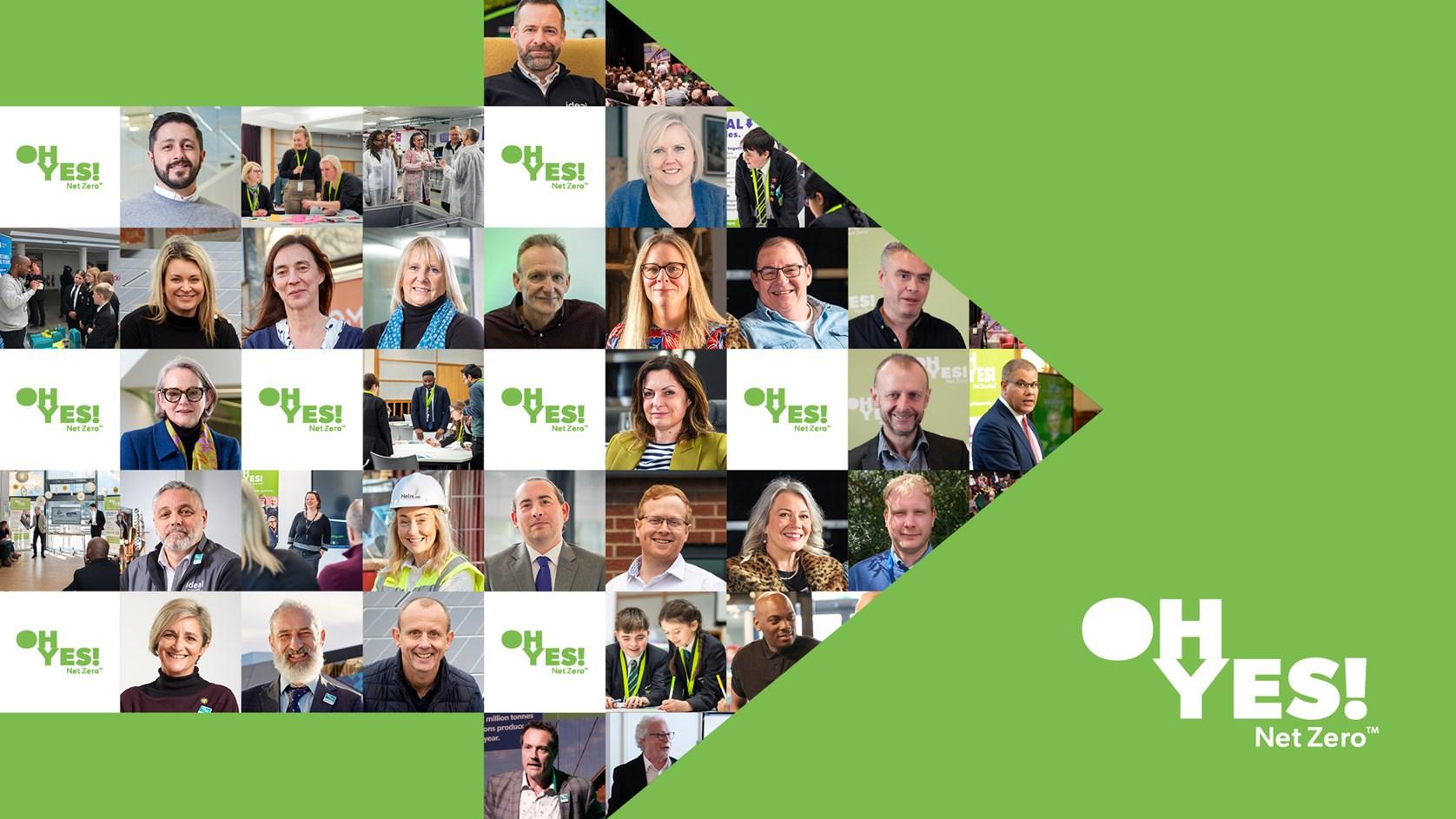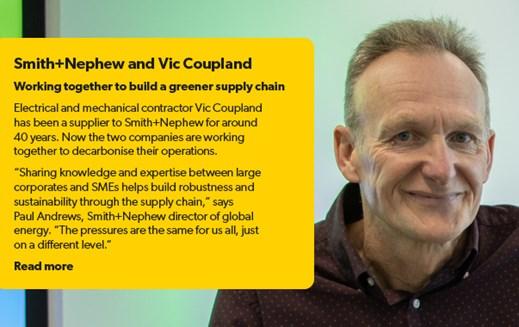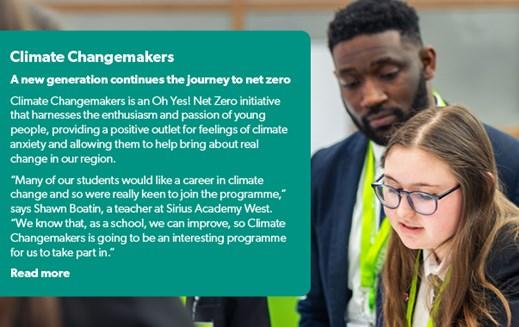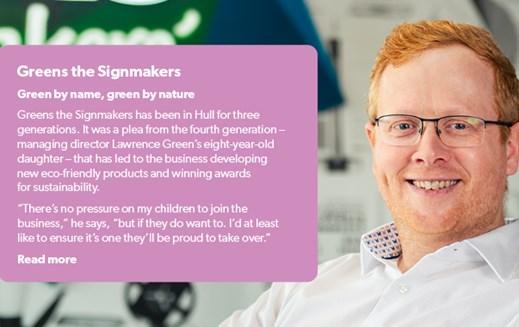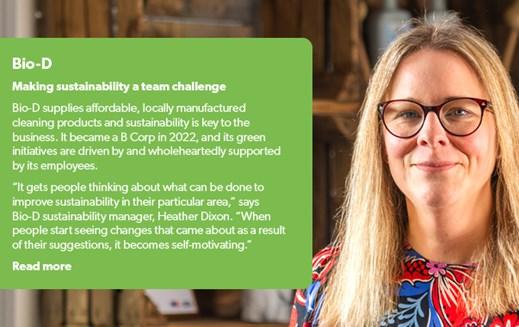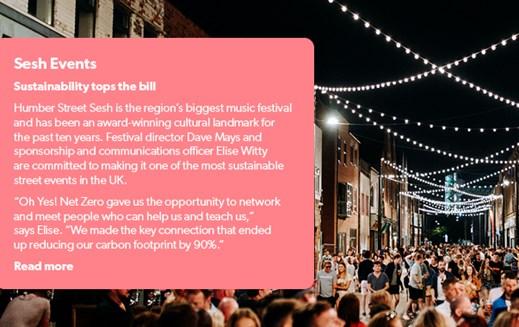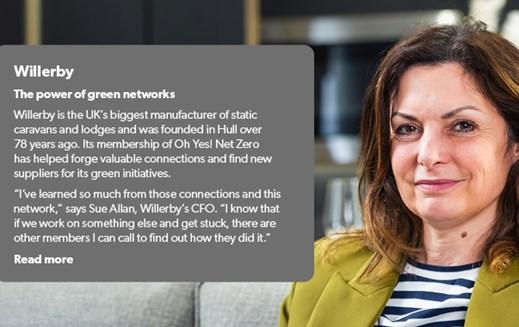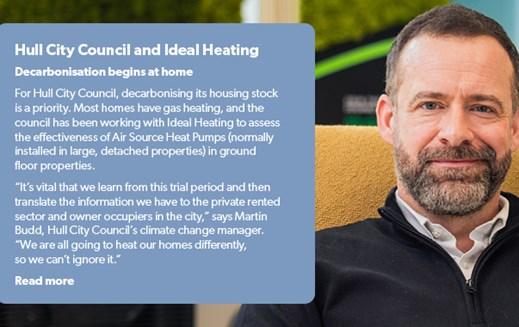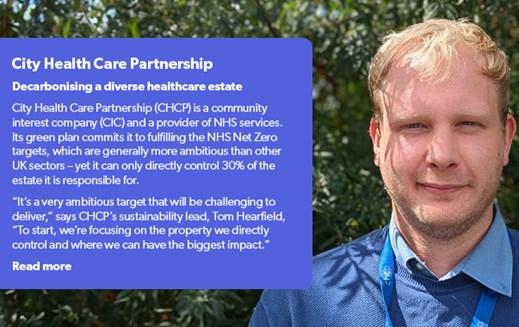It's been two years since Hull City Council, the University of Hull, Reckitt and Future Humber launched the Oh Yes! Net Zero movement at the Reckitt Science and Innovation Centre.
With vocal backing from The Rt Hon Alok Sharma, President of COP26, and the support and enthusiasm of business leaders, scientists, universities, political and community leaders, schools and residents of all ages, Oh Yes! Net Zero capitalises on Hull’s history of innovation and the enthusiasm of its people to decarbonise our region, with the aim of achieving Net Zero by 2050.
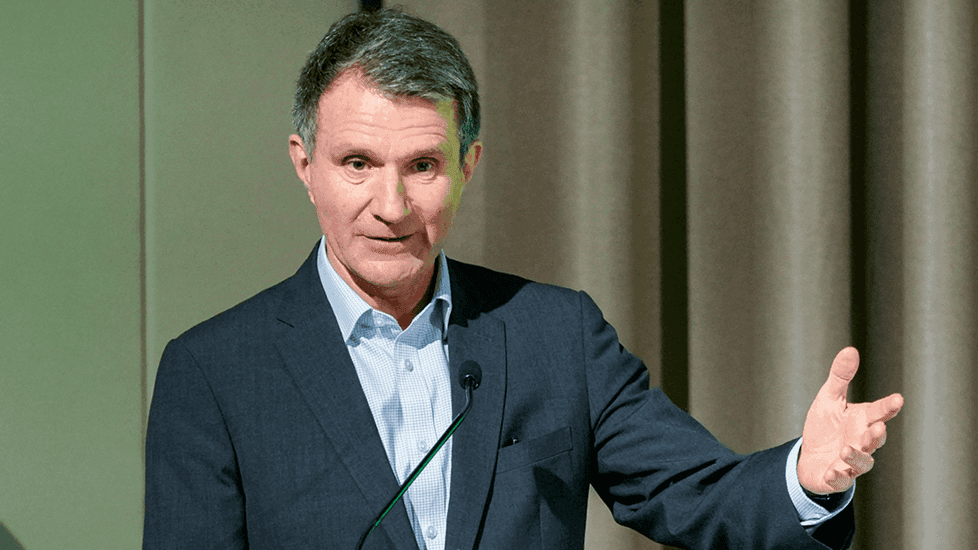
Turning up the heat on decarbonisation
Foreword by David Shukman
Hottest year, hottest decade, ocean temperatures flying off the scale – there are lots of climate developments to be gloomy about, but there’s plenty of positive news too. We’re witnessing an extraordinary shift: from it being unusual for cities, businesses and public sector organisations to have carbon reduction plans, to being unusual for them not to. The number of communities and companies joining this worldwide movement is growing fast. Find out why local action is more important than ever.
Read moreHow they’re doing it in Melbourne
It’s more than ten thousand miles away but Melbourne in Australia has a lot in common with Hull.
Both cities developed on estuaries – in Melbourne’s case beside the Yarra River – and became nationally-important industrial hubs with maritime links worldwide. But while the estuaries were a blessing for trade and for fishing, they’ve also made both cities vulnerable to flooding.
From the earliest years of its foundation, Melbourne has been inundated repeatedly. It’s one reason why the city authority declared a climate emergency in 2019 – the same year as Hull City Council.
Even Melbourne’s campaign for Net Zero sounds familiar: ‘City of Yes’, so it’s fascinating to hear about the approach of Lord Mayor Sally Capp and her team.
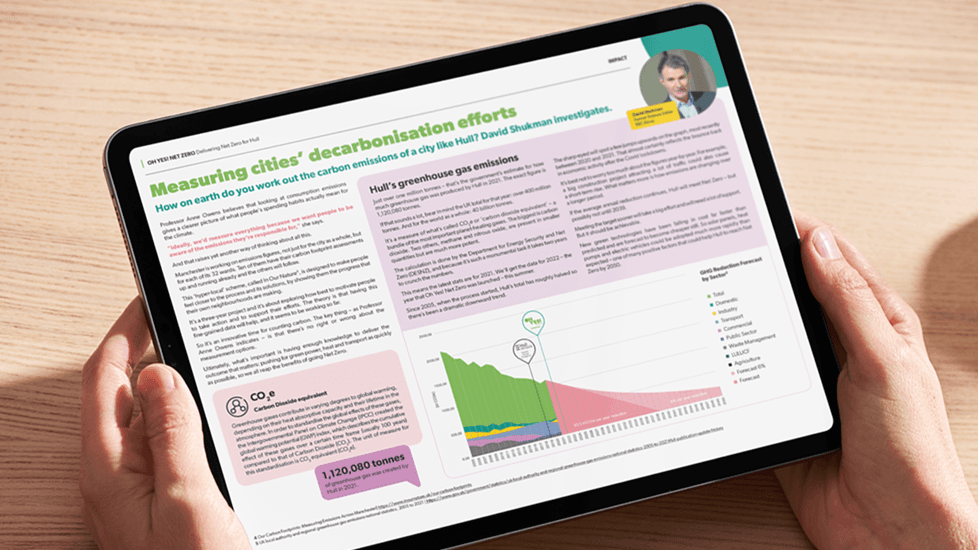
Our Impact
Measuring cities’ decarbonisation efforts – David Shukman Investigates
A new science has developed to measure cities’ carbon emissions, and different systems have evolved worldwide. In the UK, we have a territorial approach, calculating the greenhouse gases released within a local area. But what happens when people buy products made outside their city? Or outside the UK? Should we also measure consumption emissions?
Read moreThe Oh Yes! Net Zero Executive Summary shows our journey to achieving Net Zero by 2050.
The Oh Yes! Net Zero Executive Summary shows our journey to achieving Net Zero by 2050. View executive summary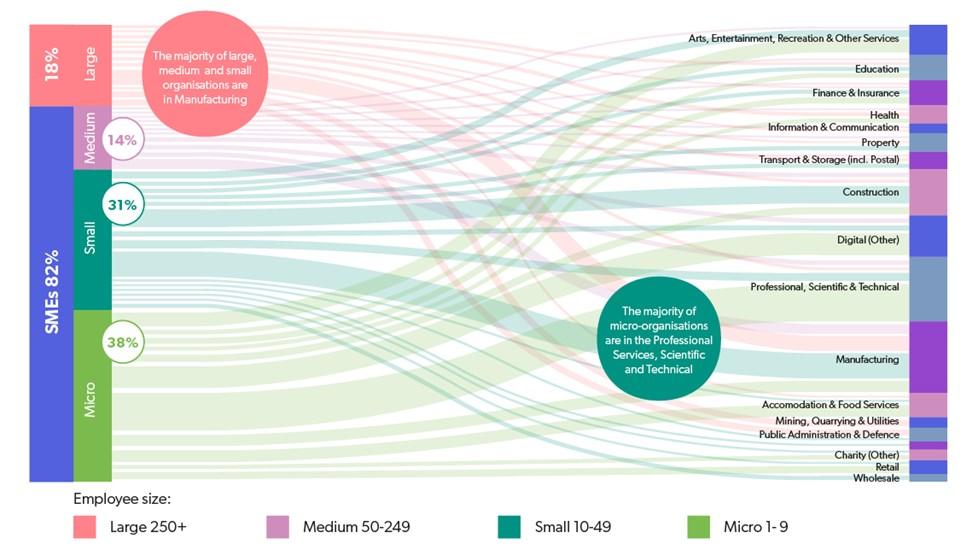
The impact of Oh Yes! Net Zero
If it’s tricky to accurately and reliably record carbon emissions for a region or city at present, how do we measure the impact of the carbon reduction measures we’re taking in Hull? Our answer is to look at what we can actively support which would serve as a leading indicator – something that, if monitored, could reliably predict outcomes in the future. We believe that tracking the number of members who have produced a carbon reduction plan (CRP) meets this criteria. Organisations with CRPs have calculated their carbon footprint and have worked out the best way to start targeting their carbon reduction efforts. They’ve identified changes they can make and, importantly, they’ve put dates against them. They have made a commitment to do something and said when they will do it. We know if a CRP is implemented, a reduction in carbon will follow, and will be measurable. Find out about our ambitions and how we look to support and utilise our strong SME (small and medium sized enterprises) representation across all sectors.
Read moreCarbon Reduction in Action
Hear from Oh Yes! Net Zero members on what they have achieved so far
